How to Make the Ears Guide
Hello to all lovers of online art, drawing and those who are learning to draw and are having difficulties with certain parts of the body ^_^
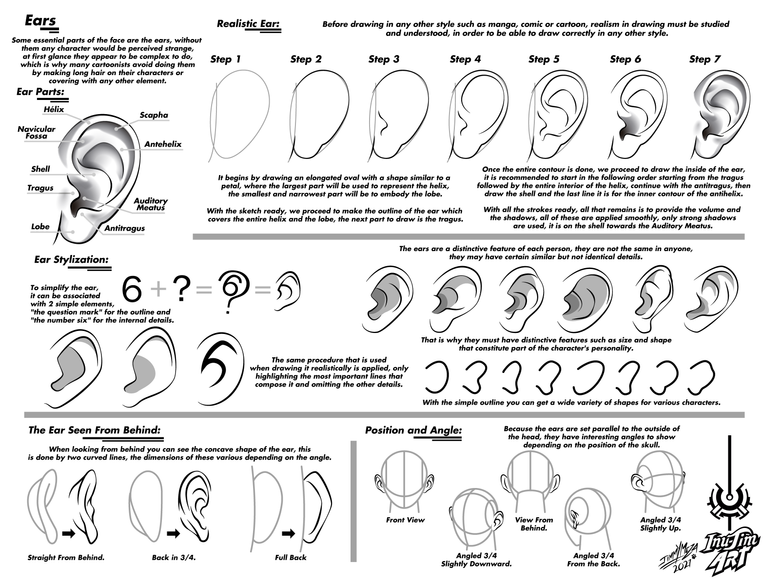
I was very busy all this time, for various reasons that is the main reason for my absence on the internet, I kept busy but in a good way, I finally made my first commission for a restaurant, I bought many tools to model my plasticine sculptures, I practiced sculpture in a gray clay that a colleague gave me, I made character designs for one of my comics and one of my friends presented me with an opportunity in a game where you can earn money, in which you must reach level 15 for that to happen. which took me more than weeks to get there, it turned out that I'm pretty bad at it and at this point I doubt I'll win anything from that game, but in summary I spent a long time without being able to sit down at my pc to write my post, the good thing is that the Things have calmed down a bit and I can now sit down to write and publish the guides that I have pending to share with you ^_^
Sketch made in pencil from my guide


Continuing with the theme of the previous guides, today I will explain how to draw, some essential parts of the face, the ears, without them any character would be perceived as strange, at first glance they appear to be complex to do, which is why many cartoonists avoid doing them. making long hair on their characters by covering them with any other element, but by understanding their structure they are easy to do.
Parts of the Ear
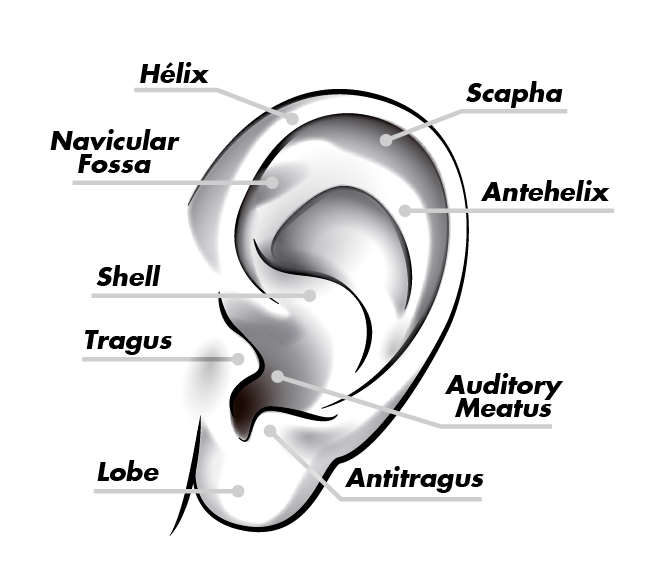
Before drawing in any other style such as manga, comic or cartoon, realism in drawing must be studied and understood, in order to be able to draw correctly in any other style.
realistic ear
It begins by drawing an elongated oval with a shape similar to a petal, where the largest part will be used to represent the helix, the smallest and narrowest part will be to embody the lobe.
With the sketch ready, we proceed to make the outline of the ear which covers the entire helix and the lobe, the next part to draw is the tragus.

Once the entire contour is done, we proceed to draw the inside of the ear, it is recommended to start in the following order starting from the tragus followed by the entire interior of the helix, continue with the antitragus, then draw the shell and the last line it is for the inner contour of the antihelix.
With all the strokes ready, all that remains is to provide the volume and the shadows, all of these are applied smoothly, only strong shadows are used, it is on the shell towards the Auditory Meatus.
Ear Stylization
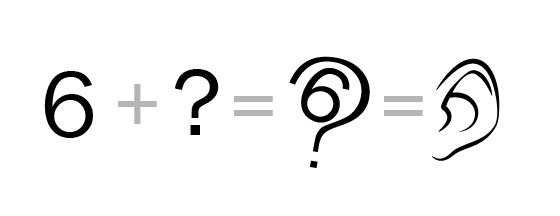
To simplify the ear, it can be associated with 2 simple elements, "the question mark" for the outline and "the number six" for the internal details.
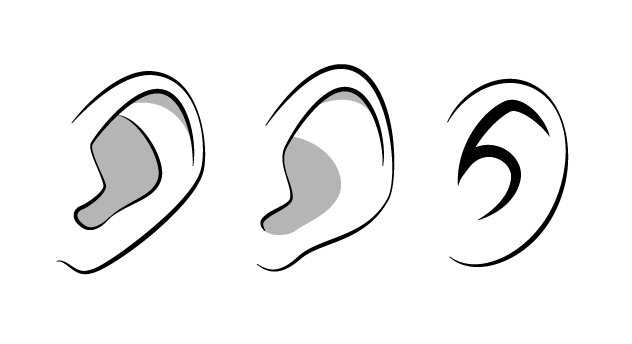
The same procedure that is used when drawing it realistically is applied, only highlighting the most important lines that compose it and omitting the other details. The ears are a distinctive feature of each person, they are not the same in anyone, they may have certain similar but not identical details.
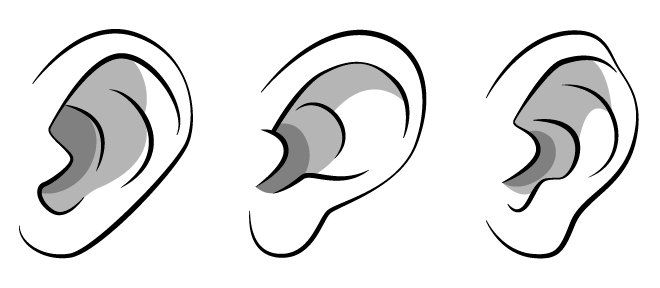
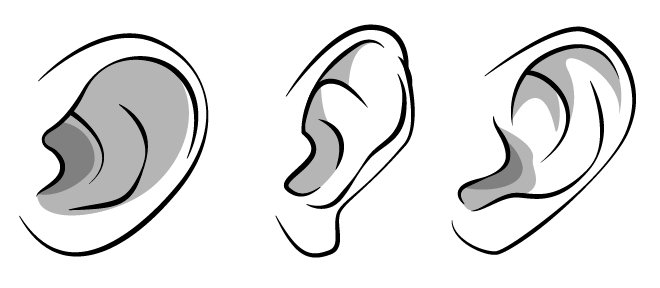
That is why they must have distinctive features such as size and shape that constitute part of the character's personality.

With the simple outline you can get a wide variety of shapes for various characters.
The ear seen from behind


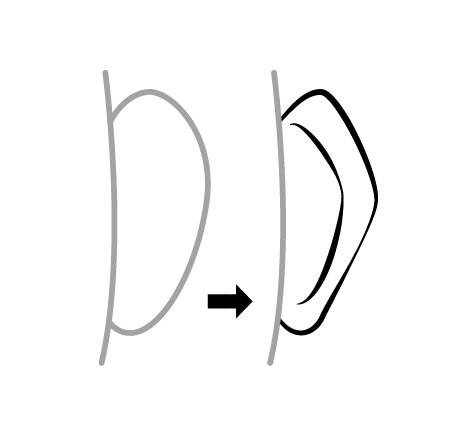
When looking from behind you can see the concave shape of the ear, this is done by two curved lines, the dimensions of these various depending on the angle.
Position and Angle
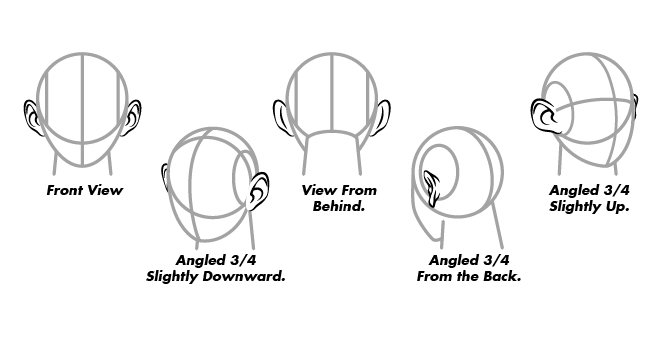
Because the ears are set parallel to the outside of the head, they have interesting angles to show depending on the position of the skull.
Technical information:
Vector digital drawing
Program used Adobe Illustrator CC 2015
Full resolution 4724 x 3602px at 300dpi
Spanish version
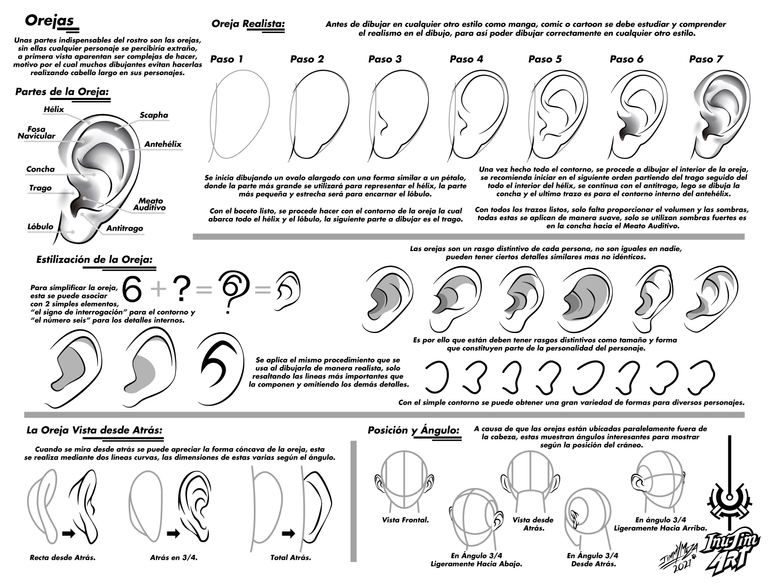

My previous published Guides

Thank you very much for reading my post
I hope you liked my Guide and that it is very useful for you
See you in a future publication
Inu-Jim
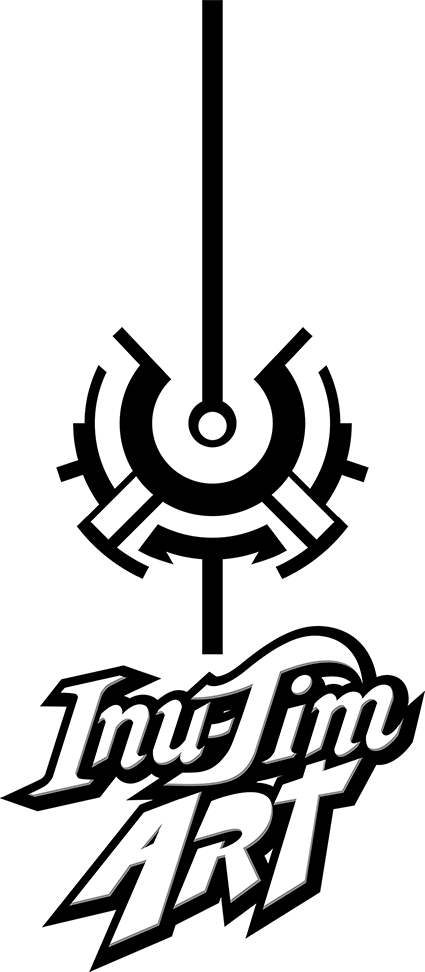
Copyright @inu-jim – All rights reserve
I hope you liked my Guide and that it is very useful for you
See you in a future publication
Inu-Jim

Copyright @inu-jim – All rights reserve